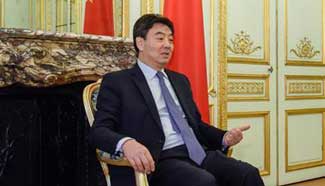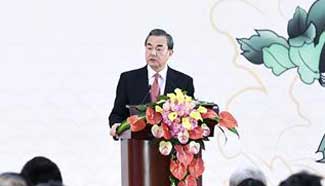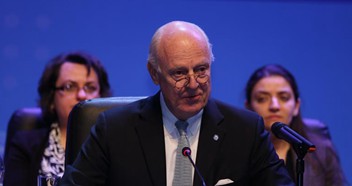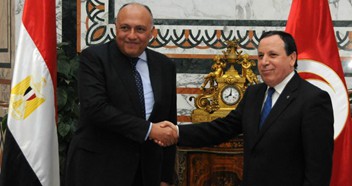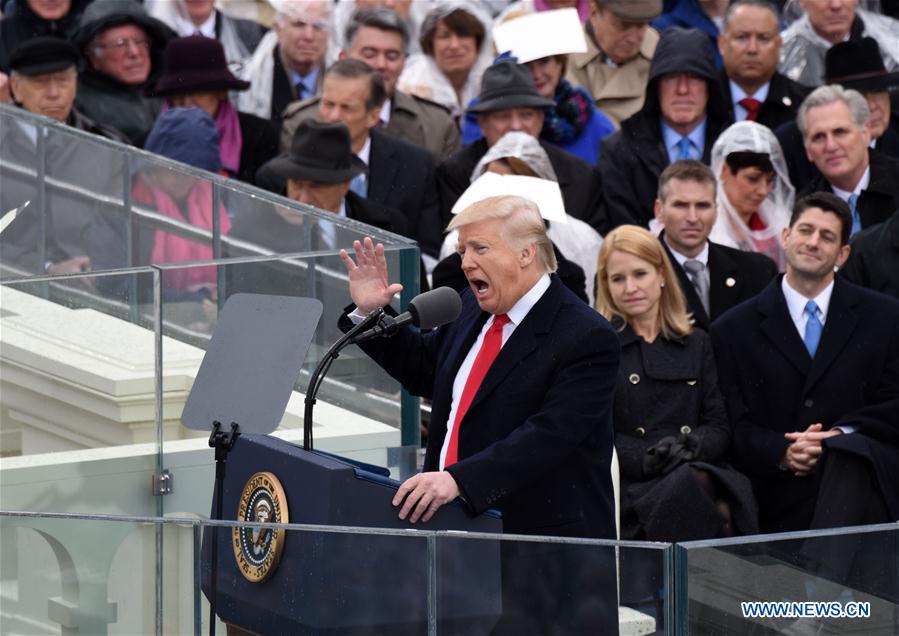
U.S. President Donald Trump delivers his inaugural address after he was sworn in as the 45th president of the United States during the presidential inauguration ceremony at the U.S. Capitol in Washington D.C., the United States, on Jan. 20, 2017. (Xinhua/Yin Bogu)
by Xinhua writer Liu Chang
BEIJING, Jan. 25 (Xinhua) -- U.S. President Donald Trump on Monday officially pulled his country out of the Trans-Pacific Partnership (TPP) trade deal, marking a start of the new administration's alarming shift of trade policies.
Trump has vowed throughout his campaign to "make America great again" by putting "America first." He insists that through negotiating bilateral trade deals, not multilateral ones, the U.S. interests could be better protected.
The new U.S. leader is also seeking to renegotiate NAFTA (North American Free Trade Agreement) with Canada and Mexico, and vowed to "tear it up" if it cannot work for America.
For the Asia-Pacific and the wider world, the miscarriage of the TPP is not so much of a pity as it lacks enough inclusiveness to either fully tap the region's economic potentials or promote regional economic integration.
Yet the international community should take America's change of course as a warning shot that the world's largest economy is trying to walk away from not only a regional trade pact, but also a rule-based global trading system, a key component of the world economic order established in the post-war period.
Without a globally recognized trade playbook, a bilateral-trade-only approach could easily invite reciprocal retribution between any two trading nations.
In that case, if one country were to slap punitive tariffs on imports from another, it is highly possible that the other party would fire back. Thus trade protectionism would ramp up and no one could be a winner.
In contrast, such multilateral trading mechanisms as the World Trade Organization were built to level the playing field, increase trade for every participant, and manage trade disputes among all countries, whether big or small, before the same set of rights and obligations.
While multilateral trade deals are more preferable, the challenge is that it could take years or even decades for all signatories to agree on everything on their respective wish lists. The long-stalled Doha Round of trade talks speaks for the conundrum. But that is not entirely inextricable.
Right now, many countries around the world have begun to consider bilateral and regional free trade agreements like the Regional Comprehensive Economic Partnership, a proposed free trade pact that gathers 10 ASEAN (the Association of Southeast Asian Nations) members and six countries in the area, which are important supplements to the multilateral trading system.
The trade policy adjustments initiated by the White House under Trump may be positive for the United States in the short term, yet the fleeting sugar rush would not help push forward inside the United States the much-needed social and economic reforms to improve its social welfare and income redistribution systems, and to train highly-skilled labor forces adaptive to an ever changing global economic landscape.
More than that, his protectionist trade agenda has set a dangerous precedent for trade players around the world to stress strength rather than rules, and encourage a competition for self-interests instead of shared benefits.
The current global trading system may not be perfect, yet it could at least promote economic growth and fairness at the same time. Rejecting economic globalization would undermine both.
Related:
Trump signs executive orders on TPP, abortion-supporting foreign NGOs, federal hiring freeze
WASHINGTON, Jan. 23 (Xinhua) -- U.S. President Donald Trump on Monday signed three memorandums, ordering the withdrawal from the Trans-Pacific Partnership (TPP), a freeze on federal hiring and a ban on financing pro-abortion programs abroad with U.S. federal funds. Full story





